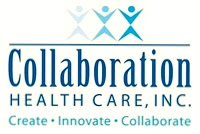+(2).jpg)
We’re waiting to hear the outcome of the Supreme Court's decision about the Affordable Care Act. We should get the word before June 28. The odds are (from what I’ve heard and read) the most contentious part of the legislation (the requirement for everyone to have health insurance) will be declared unconstitutional by a 5-4 vote. Nobody really knows, but that seems to be the scuttlebutt. The question we are then going to face is if that part of the law goes away, how will the rest of the law work? Or will it at all? And if Romney wins in November and succeeds in repealing the entire law (a campaign promise), will all of this be for naught? Nobody said changing the way health care works was going to be easy. But it has to be done.

Americans are going to need to understand that the status quo is not an option. The way our health care system works needs to change. It’s simply too expensive. It is going to need to be different than it has been in the past no matter what approach is used to try to fix it. Individuals are going to need to step up to the plate more than they ever have before and be informed, take responsibility, and participate. They are going to need a basic understanding of reality instead of relying on their emotions to form opinions and make decisions.
Many states (Minnesota included) are already trying new approaches without federal involvement. While some states may be taking some action, others don’t have the funds, the will, or the expertise to take on the challenge. This is a national issue that needs everyone involved. The key to success in any effort is to get individuals engaged to become part of the solution- not be part of the problem.
The Citizens League and Bush Foundation are holding a series of “conversations about health care” across Minnesota to receive citizen input about their perspectives of what needs to be done to address the health care challenges we face. The information they gather will be used to help state policy-makers make decisions about health care in the state. I took my US Health Systems class to one of the events. I was once again amazed with the lack of understanding of the general public as to what is really going on. (You can link to the Bush Foundation blog post I was asked to write
by clicking here).
We need to teach and train the general public better about health care better than we have. The logic and details of the Affordable Care Act were communicated poorly and have since been buried in politics. The system we have created is complex and confusing- but can be explained. The health care system itself has tried some education efforts but has a trust issue with the general population. So the problem of a relatively uninformed general public remains.
If we can create a better informed public by teaching the facts, the options, and the roles they will need to play discussion just might be more productive. Until then, we’re simply going to continue to tread water. You can only tread water for so long before you sink. I hope we don’t get to that point, but you never know.
+(2).jpg)
 United Healthcare CEO Stephen Hemsley said in a statement, “The
protections we are voluntarily extending are good for people’s health, promote
broader access to quality care, and contribute to helping control rising health
care costs.”
United Healthcare CEO Stephen Hemsley said in a statement, “The
protections we are voluntarily extending are good for people’s health, promote
broader access to quality care, and contribute to helping control rising health
care costs.”


